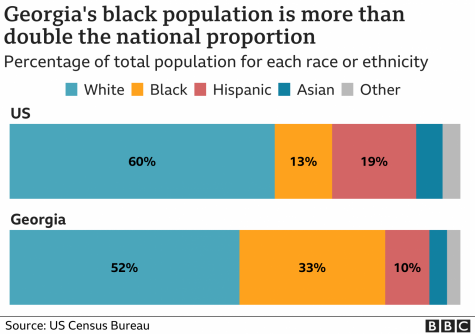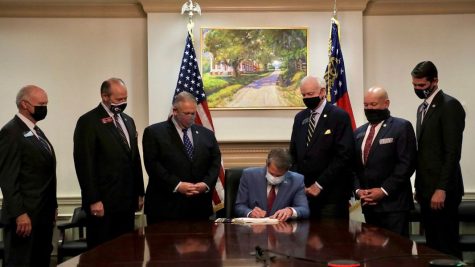GA Voter Law v. Corporations
The new policies have significant geographical and voter demographic implications, as some new changes seem specifically tailored to expand access in smaller, rural counties, while ballot access has been further limited in more densely populated areas.
In late March, Georgia’s Republican legislature passed new voting laws which faced immediate backlash due to stringent regulations. The nearly 100-page document places new limitations on absentee voting, tightening ID requirements and diminishing ballot access, particularly in urban areas, where the Democratic vote is concentrated. The new policies have significant geographical and voter demographic implications, as some new changes seem specifically tailored to expand access in smaller, rural counties, while ballot access has been further limited in more densely populated areas. One change includes the risk of incurring misdemeanor charges for offering food or water to people waiting in line to vote; although this may seem trivial, this change in fact presents more of an issue in larger counties and cities where voting lines can become quite long, making it an arduous and difficult process.

Three major organizations have already filed lawsuits, claiming that such policies specifically disenfranchise Black voters. A particularly notable development in this issue is the backlash that has emerged from major corporations, including Amazon, Google, Coca-Cola, and even Major League Baseball—which has announced that they will move their July All-Star Game out of Atlanta. The corporate response to the new voting laws has been unique in its deviation from resorting to lobbying. An increasing number of corporations are shifting to expand their goals on more than just vague commitments to “diversity and inclusion.” James Quincey, Coca-Cola CEO and chairman, promised that the company would continue to work with stakeholders to advocate for change, describing that they would now focus “on supporting federal legislation that protects voting access and addresses voter suppression across the country.”
Many Republican leaders, including Sen. Mitch McConnell, have criticized corporate involvement and have pushed them to “stay out of politics.” Republican lawmakers claim that these changes were made solely to protect election integrity, which many on the right feel is threatened after false claims of voter fraud were disseminated throughout the 2o20 presidential election. It seems that due to the lack of evidence for widespread voter fraud, Republicans are now seeking to pursue their agendas through these voting restrictions, which President Joe Biden condemned as “Jim Crow in the 21st century.” Many find hope and reassurance in the newfound resolve major corporations seem to have in upholding democratic principles.

However, there is still much work left to be done, as more companies are being called upon to assume a new level of corporate social responsibility (CSR). Sherrilyn Ifill of the NAACP emphasizes the need to create “an internal corporate culture that truly allows for civic engagement and ensures that employees’ civil rights are protected and respected.” Many hope that through the advocacy and support of corporations, the reversal of these voting laws can be achieved, as more business leaders undertake CSR and the obligation Quincey described: “We all have a duty to protect everyone’s right to vote, and we will continue to stand up for what is right in Georgia and across the U.S.”

